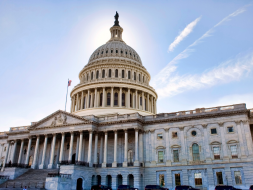Congress crossed the finish line with the Coronavirus Aid, Relief, and Economic Security (CARES) Act which is a vital lifeline for transit with $25 billion in funding for rural and urban areas across the country.
“Congress is providing a vital line of support through its $2 trillion stimulus package. Missouri transit agencies are facing massive deficits due to dropping fare box recovery, increased expenses from new cleaning protocols and significant driver absenteeism. This money will go a long way towards ensuring that transit agencies can survive until this public health crisis subsides. Public transportation is vital to local communities. We are grateful to our congressional delegation for stepping up for transit during this time,” said Kim Cella, executive Director of CMT and MPTA.
According to TransitCenter based in New York, transit agencies nationally, if social distancing continues over the next 12 months, will face a shortfall of $26-38 billion. Missouri’s estimated share of that would be $166-239 million. The model assumes that fare and park-and-ride revenue drops by 75-100% (fare revenue will fall more than ridership does), local sales tax revenue falls by 30-55%, and local/state support and other agency-generated revenue falls by 20-30%. Bi-State Development in St. Louis is estimating a loss of $88 million from the impact of COVID-19.
Funding included in the Act would be allocated to transit operators to protect public health and safety while ensuring transportation access to jobs, medical treatment, food, and other essential services remain available during the COVID-19 response. The CARES Act provides almost three times (280 percent) the FY 2020 appropriations for each of these programs; and distributes the funds proportionally based on the ratio of funding for these formula programs in the FY 2020 apportionments.
Funding for transit is broken out as follows:
5307 Urbanized Formula Grants: $13.79 billion
5311 Rural Area Formula Grants: $2 billion
5337 State of Good Repair: $7.51 billion
5340 Fast-Growth & High Density: $1.71 billion
The bill clarifies that these funds are for operating expenses related to the coronavirus public health emergency beginning on January 20, 2020, and should be used for operating costs to maintain service, lost revenue due to the coronavirus emergency, as well as the purchase of personal protective equipment, and paying for the administrative leave of operations personnel due to loss of service. These funds are not required to be included in the transportation improvement plan, state transportation improvement plan, or long range transportation plan. Funds will remain available until expended.
“The days and weeks ahead will be defined by more change and new challenges. The transit service that is essential now will be even more so when Missourians get back to the business of building safe, sustainable and economically viable communities. Thank you to Congress to help keep transit on track,” said Cella.
